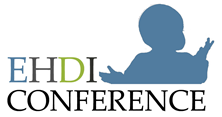| Abstract Information: |
| Title: |
Creating Pathways to Language Development through the Use of Cochlear Implants and Music |
| Primary Track: |
2-Audiological Assessment and Intervention
|
| Keyword(s): |
Cochlear Implants, Music, Language, Early Intervention |
Abstract: |
Music plays an important role in a normal hearing child’s life but what about a child with a profound hearing loss? Historically, many intervention approaches for a young child with a profound hearing loss has included speech and language therapy, sign language and a type of hearing technology –either hearing aids or cochlear implants. Music as an intervention approach has often been overlooked as a bridge to language development because it was often thought that a child with a profound hearing loss would not have access to it using conventional amplification or a cochlear implant. However, with the recent advancements in hearing technology specifically cochlear implants we now are able to code sound information similar to how we hear normally. Given this amazing improvement in the sound processing strategies of a cochlear implant coupled with the early identification and intervention of children with profound hearing losses we now understand that music can be a critical component in a child’s development of spoken language. During this presentation we will examine music development of normal hearing children and how it compares to children with cochlear implants. We will discuss how music and language share many similarities and how interweaving both can be used as a natural way to developing a child’s spoken language skills. A discussion of how the technology of a cochlear implant has evolved to encode the temporal and spectral characteristics that are important for distinguishing music and listening in challenging environments and why this is important for a young child’s auditory development. Finally, we will provide the participants with ideas and resources to encourage music and language development for a child with a profound hearing loss in his natural environment – the home. |
| Presentation(s): |
Not Available
|
| Handouts: |
Not Available
|
|

